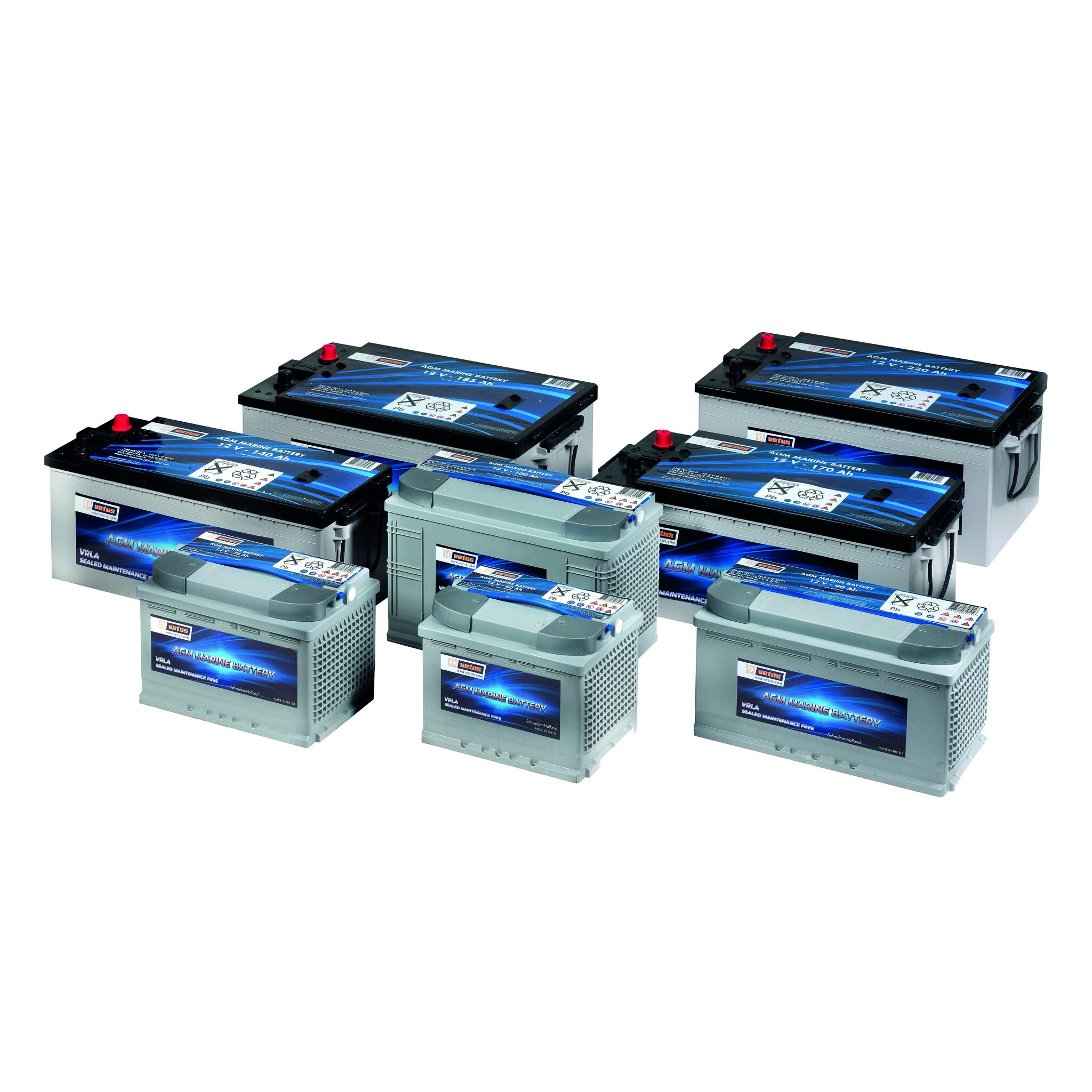AGM batteries
Lead-acid batteries (lead-acid batteries) are indispensable on boats for starting the engine or for supplying on-board aggregates. For boats, reliable spill protection even in heavy seas is essential, as is the ability to stow the batteries in virtually any location (even in the cabin area Only gel and AGM batteries meet these requirements for marine batteries, whereas liquid batteries can leak when tilted and release corrosive sulfuric acid. AGM batteries, in which the acidic electrolyte liquid is bound to a fleece of glass fiber (Absorbent Glass Mat) in a leak-proof manner, have proven particularly effective on boats. The low electrical resistance of this fleece in AGM batteries ensures high capacities during starting.
Advantages of AGM batteries
Because of the spill protection, high current capacities and universal applications, AGM batteries are state of the art for boats. AGM batteries are also partly installed in start/stop vehicles, electric cars and motorcycles. Especially in the latter - as with AGM batteries for boats - no acid may leak when tilting, which can endanger people, materials and the environment.
Capacity and service life of AGM batteries
AGM batteries for boats offer other advantages in addition to leakage protection and good starter properties. So AGM batteries with 300 to 1000 charge cycles are significantly longer lasting than gel batteries. At awn you can get AGM batteries between 60 and 220 Ah depending on your needs. The service life of AGM batteries depends on proper storage and charging. It is about 10 years, provided that the AGM batteries are not discharged stored and always fully charged after use (Note: Powerful charger is advantageous, so that the charging process must not possibly be canceled for lack of time.
Storage of AGM batteries
The leakage protection allows the use of AGM batteries for boats in virtually any situation. Since there is no gas leakage, they are also suitable for indoor use. However, greater heat will harm AGM batteries and shorten their life. Are AGM batteries loaded (voltage not below 12 V), the electrolyte freezes only at -70 degrees, so AGM batteries so also survive the winter without problems.

